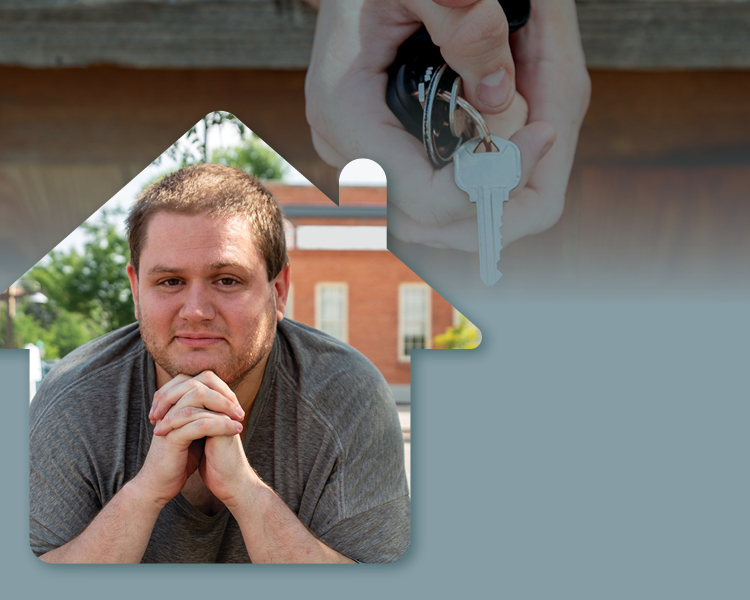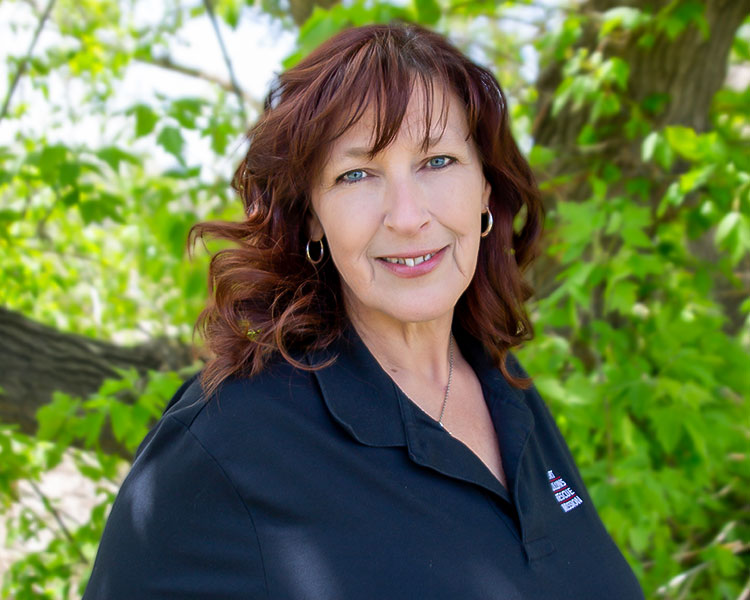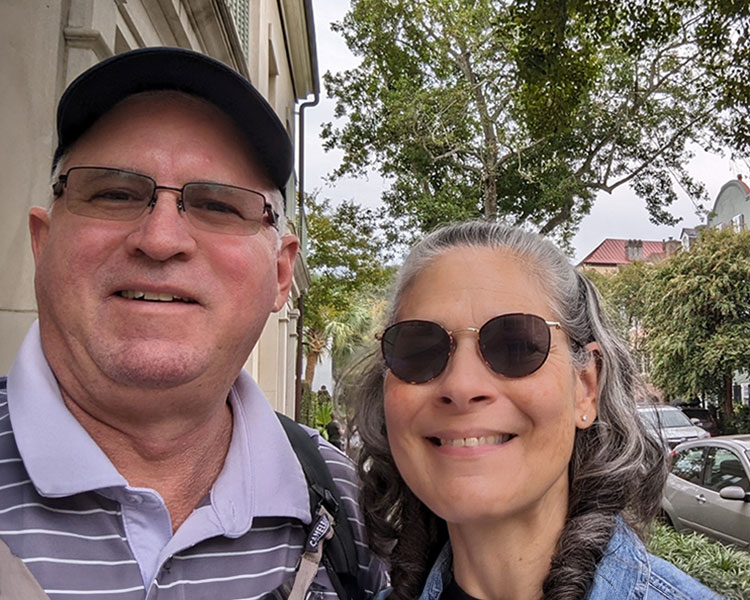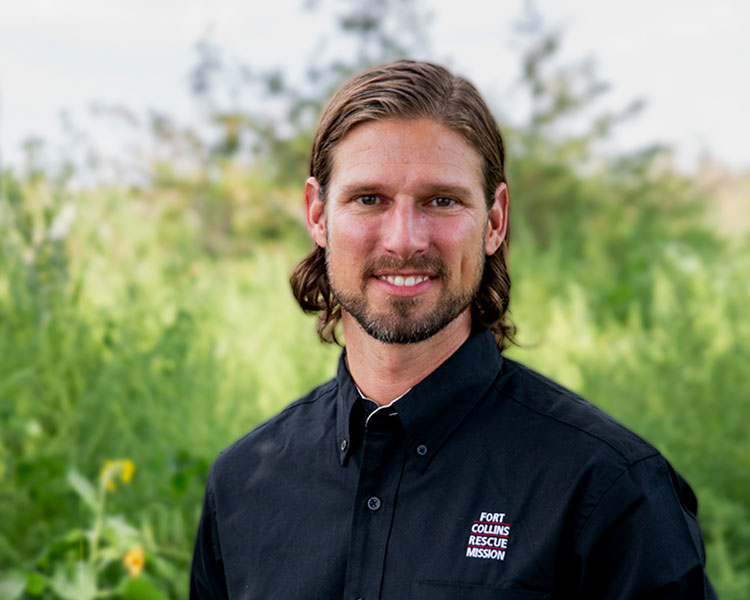No matter our stories, we all have scars from the past. For some of us, they are internal. Others wear theirs on their skin. For Michael, it is both.
Michael was only 15 years old when his mother dropped him off at a children’s home. It was Thanksgiving Day, a day that for Michael, would ultimately lead to a life of uncertainty.
Growing up, Michael played the trumpet and was a point guard for his high school basketball team. At home, he was outnumbered by his five sisters, whom he often found himself protecting from school bullies despite the sibling rivalry that was going on at home. He protected his siblings the way parents protect their children—the type of protection that Michael never experienced himself.
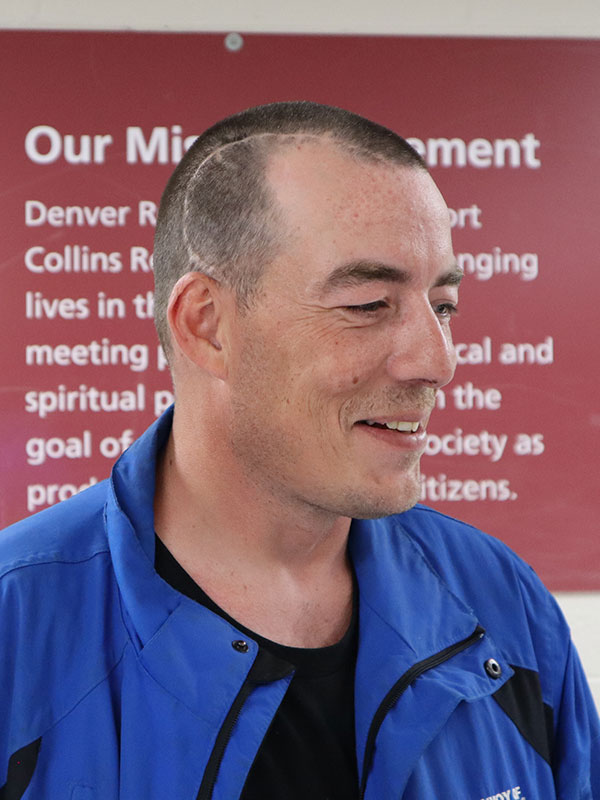
Michael Experienced a Childhood of Instability
Rather than feeling safety and comfort by the adults in his life, Michael was more of a target—someone for his mother to, as Michael recalls, “focus all of her rage toward men on.” This rage was further fueled when Michael’s stepfather sexually abused one of his sisters, which resulted in his mother being detained for a year.
During this time, Michael lived in various children’s homes and developed intense fears of abandonment. “It kind of showed me that whether I do something right or wrong, I can end up losing everything I have,” he said. “I did not like being under other people’s control. I did not like being forced to go from this children’s home to this youth center and just being bounced back and forth. I had no control.”
Michael eventually ran away from the children’s home when he was 17. It was during this time that he decided he would try to get in contact with his biological father. “I didn’t see my dad my whole life,” he said. “He had been in and out of prison. It was a random phone call here and there throughout my life, but nothing that left an image.”
Michael had hopes that this blank image that lived in his head of his father could eventually turn into a positive figure in his life. Unfortunately, to Michael’s dismay, this was not the case.
The interactions Michael would come to have with his father consisted of disappointment after disappointment.
“I had no money, no property, and I was homeless on the streets”
On one instance, while Michael was staying with him, he found out that his father had sold all his belongings. “I had no money, no property, and I was homeless on the streets,” recalls Michael.
Michael Struggled With His Mental Health
With no one to turn to, Michael began working with case managers to assist him in finding housing. Seemingly unable to catch a break, the housing Michael found left him in a downward spiral. “That was the first suicide attempt I ever tried, because the living conditions were so bad,” he said. “There was even a blood stain on the carpet from the previous tenant.”
Although this may have been his first suicide attempt, it was not his first time struggling with his mental health. “I was abused when I was growing up by stepdad and my mom,” he said. “So, I ended up being very self-deprecating. I would feel like everything was my fault. I just felt bad all the time and one of my teachers made a note about it. If someone would be joking around and said something negative toward me, I would just accept it.”
“I ended up being very self-deprecating. I would feel like everything was my fault. I just felt bad all the time.”
This type of behavior resulted in Michael going to therapy and being diagnosed with manic depression and suicidal tendencies.
When Michael was living on the streets, he ended up having a brain aneurysm and had to get brain surgery. This not only left him with a significant amount of debt, but also a salient scar across his head and seizures as a side effect.
Seizures and street life did not keep Michael from surviving. Some of Michael’s survival techniques included hunting wild snakes and fish for food during his time on the streets, tricks he learned from people who had been doing it for awhile.
Trying to find work with a disability and little to no resources was undoubtedly a struggle for Michael. His seizures are often stress induced, so his past work experience in landscaping and construction put him at too high of a risk.
The Mission Gave Michael Real Support
Five years ago, Michael found Fort Collins Rescue Mission. With the Mission now providing 24/7 sheltering, Michael appreciates not having to carry everything he owns with him. He is also grateful to have his own bed with security cameras to ensure his belongings are safe. Staff members have also played a role in helping Michael feel supported.
Currently, Michael is trying to get unemployment benefits after losing his job due to COVID-19. To manage his stress, Michael has been seeing a counselor. “I go in once a week to let loose of all the stress,” he explained. “Anything that I have been dwelling on, I just go in there and tell her about it so that I don’t dwell on it anymore.”
Michael’s story is just one example of how disheartening the road of homelessness can be.
“Anybody could end up in this situation,” Michael said. “When people see you come in with a backpack and dirty clothes or unwashed hair, they just look at you. [Hearing] the sound of their voice when they talk to you, you can tell they feel like you’re less than dirt and that you should be embarrassed for being in their presence. It makes me wonder if they are right. What if I am less?”
Written by Isabella Moore-Munoz, Marketing and Communications Intern




